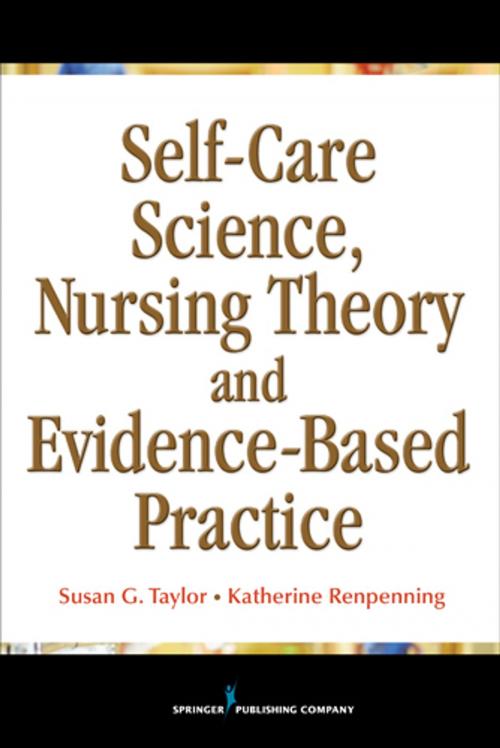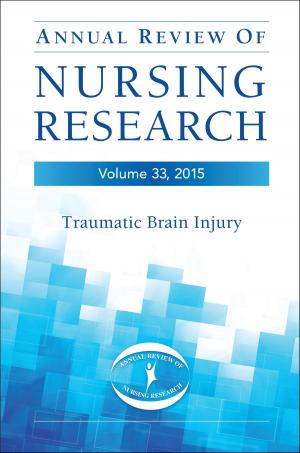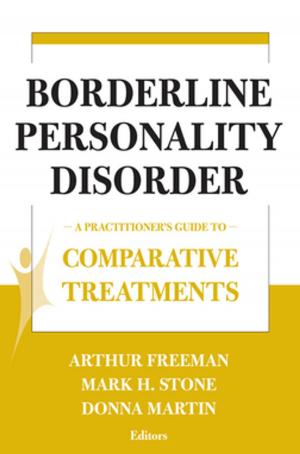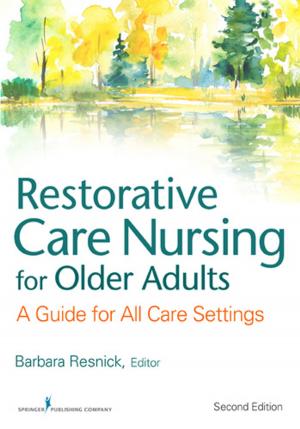Self-Care Science, Nursing Theory and Evidence-Based Practice
Nonfiction, Health & Well Being, Medical, Nursing, Research & Theory| Author: | Katherine Renpenning, MScN, Susan Gebhardt Taylor, MSN, PhD, FAAN | ISBN: | 9780826107794 |
| Publisher: | Springer Publishing Company | Publication: | May 20, 2011 |
| Imprint: | Springer Publishing Company | Language: | English |
| Author: | Katherine Renpenning, MScN, Susan Gebhardt Taylor, MSN, PhD, FAAN |
| ISBN: | 9780826107794 |
| Publisher: | Springer Publishing Company |
| Publication: | May 20, 2011 |
| Imprint: | Springer Publishing Company |
| Language: | English |
"This is an excellent review of the development of self-care deficit theory and the use of self-care in nursing practice. Explanations of the various theories and theory terms are well done and written at a level that novice theorists can relate to. The authors demonstrate how self-care science can be fiscally and effectively applied to the care of patients/clients."--Doody's Medical Reviews
Dorothea Orem's Self-Care Theory has been used as a foundation for nursing practice in healthcare institutions and as the basis of curricula in nursing schools for decades. This book explores the high-level theory of the application of Orem's Self-Care Theory, and how it can improve patient outcomes as well as cost-effectiveness of nursing care delivery. Written for nursing theorists, researchers, administrators, and graduate students, the text addresses the relationship of self-care theory and evidence-based care in nursing, and provides a solution to improving contemporary healthcare outcomes.
The book is divided into three sections. Section one discusses the reason for the existence of the nursing profession, and identifies the performance of self-care. Section two covers three nursing practice sciences-wholly compensatory nursing, partly compensatory nursing, and supportive educative nursing. Section three offer suggestions on how health care organizations can incorporate this broadened perspective of what constitutes evidence based practice and on-going research methodology into every-day delivery of nursing services.
Key Features:
- Includes case examples to illustrate the application of theory to nursing practice
- Provides a current, cost-effective resource for implementing Orem's Self-Care Deficit Theory for effective evidence-based practice
- Builds the link between the application of Orem's Self Care Theory and improved patient and fiscal healthcare outcomes
"This is an excellent review of the development of self-care deficit theory and the use of self-care in nursing practice. Explanations of the various theories and theory terms are well done and written at a level that novice theorists can relate to. The authors demonstrate how self-care science can be fiscally and effectively applied to the care of patients/clients."--Doody's Medical Reviews
Dorothea Orem's Self-Care Theory has been used as a foundation for nursing practice in healthcare institutions and as the basis of curricula in nursing schools for decades. This book explores the high-level theory of the application of Orem's Self-Care Theory, and how it can improve patient outcomes as well as cost-effectiveness of nursing care delivery. Written for nursing theorists, researchers, administrators, and graduate students, the text addresses the relationship of self-care theory and evidence-based care in nursing, and provides a solution to improving contemporary healthcare outcomes.
The book is divided into three sections. Section one discusses the reason for the existence of the nursing profession, and identifies the performance of self-care. Section two covers three nursing practice sciences-wholly compensatory nursing, partly compensatory nursing, and supportive educative nursing. Section three offer suggestions on how health care organizations can incorporate this broadened perspective of what constitutes evidence based practice and on-going research methodology into every-day delivery of nursing services.
Key Features:
- Includes case examples to illustrate the application of theory to nursing practice
- Provides a current, cost-effective resource for implementing Orem's Self-Care Deficit Theory for effective evidence-based practice
- Builds the link between the application of Orem's Self Care Theory and improved patient and fiscal healthcare outcomes















